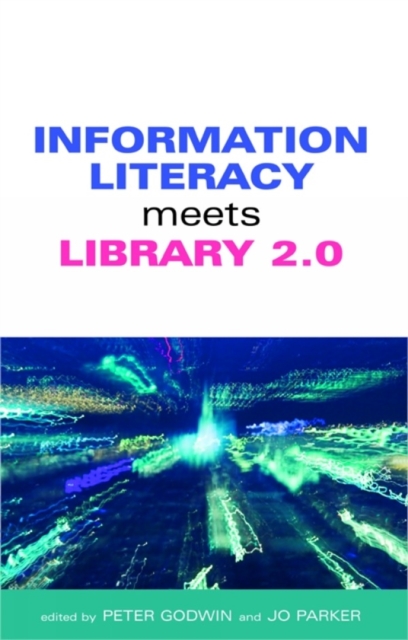
Information Literacy Meets Library 2.0 PDF
Edited by Peter Godwin, Jo Parker
Description
Web 2.0 technologies have been seen by many information professionals as critical to the future development of library services. This has led to the use of the term Library 2.0 to denote the kind of service that is envisaged. There has been considerable debate about what Library 2.0 might encompass, but, in the context of information literacy, it can be described as the application of interactive, collaborative, and multimedia technologies to web-based library services and collections.
These developments challenge librarians involved in information literacy with more complex and diverse web content, a range of exciting new tools with which to teach, and a steep learning curve to adjust to the constant change of the Web 2.0 world.
This edited collection from an international team of experts provides a practically-based overview of emerging Library 2.0 tools and technologies for information literacy practitioners; addresses the impact of the adoption of these technologies on information literacy teaching; provides case study exemplars for practitioners to help inform their practice; and examines the implications of Library 2.0 for the training of information literacy professionals.
Key topics include:
- School Library 2.0: new skills and knowledge for the future
- information literacy, Web 2.0 and public libraries
- the blog as an assessment tool
- using Wikipedia to eavesdrop on the scholarly conversation
- information literacy and RSS feeds
- library instruction on the go: podcasting
- sparking Flickrs of insight into controlled vocabularies and subject searching
- joining the YouTube conversation to teach information literacy
- going beyond Google
- teaching information literacy through digital games.
Readership: This book will be essential reading for all library and information practitioners and policy makers with responsibility for developing and delivering information literacy programmes to their users. It will also be of great interest to students of library and information studies.
Information
-
Download - Immediately Available
- Format:PDF
- Pages:200 pages
- Publisher:Facet Publishing
- Publication Date:15/03/2008
- Category:
- ISBN:9781856048668
Information
-
Download - Immediately Available
- Format:PDF
- Pages:200 pages
- Publisher:Facet Publishing
- Publication Date:15/03/2008
- Category:
- ISBN:9781856048668






